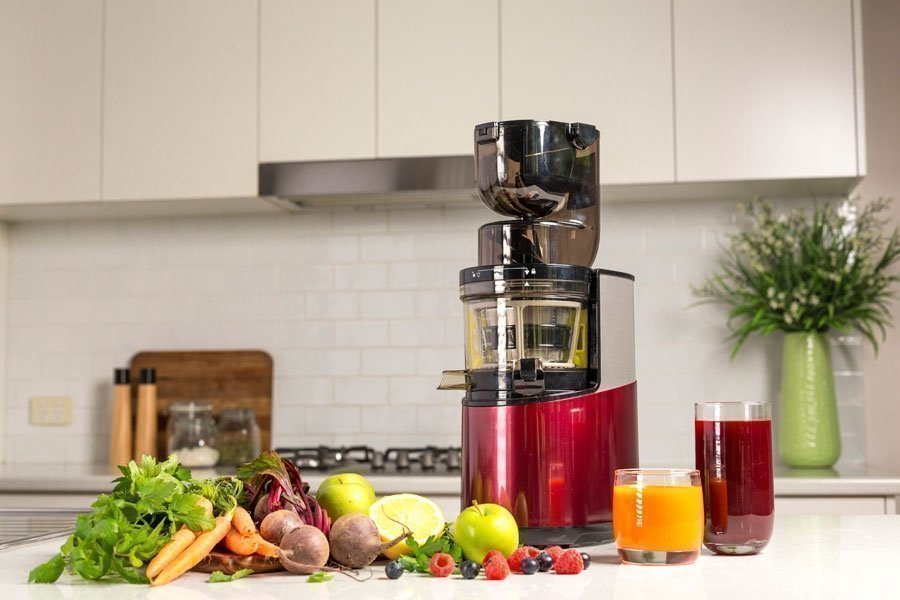Vitality 4 Life uses cookies to provide and improve our services, if you continue browsing, we consider that you accept its use. For more information, please see our privacy page.

Food Dehydrator Yoghurt Recipe
Making yoghurt at home is super easy with the use of a food dehydrator! Rich in protein, calcium and probiotics; yoghurt is often thought of as a ‘superfood’ due to its ability to reduce fat (due to its high calcium content) and improve digestion - we can thank the good bacteria for that.
Freshly-made yoghurt is filled with countless numbers of beneficial bacteria that will help aid digestion and the probiotics will assist in boosting your immune system. Other health benefits from fresh yogurt include the reduction of high blood pressure, heart health, decreased bloating, as well as relief of both constipation and diarrhea and other stomach disorders.
The secret to good yoghurt is that it contains live cultures. There are four major strains of bacteria to look for: L. acidophilus, L. bulgaricus, S. thermophilus, and bifidobacteria.
Benefits of Making Yoghurt at Home

- Simple and easy to make at home using a food dehydrator
- No added preservatives - know exactly what you’re putting into your homemade yoghurt
- High quality / low cost - make large quantities of organic yoghurt for a fraction of the price of store-bought tubs!
Food Dehydrator Yoghurt Recipe
Ingredients
- 1litre full cream milk (organic if possible)
- 1 small tub yoghurt (approx 2 heaped tablespoons)
Method
Pour milk into a saucepan and stir constantly over a medium heat until it reaches 85°c. Keep a close eye on the milk to ensure it does not boil and doesn't stick to the bottom of the pan.
Once this temperature has been reached remove from heat and let cool until to 35 - 40ºC.
Whisk in the small tub of yoghurt (this will introduce the active cultures into the milk to enable the fermentation process to begin). Make sure yogurt is mixed in well with milk.
Transfer mixture into glass jars with lids (mason jars are perfect for this).
Remove all trays from your food dehydrator and place jars inside.
Dehydrate for 8 to 10 hours. Do not stir or remove yogurt during this dehydrating time.
Once finished, place jars in fridge. Yoghurt will thicken as it cools.
Sweetening Your Homemade Yoghurt
Yogurt is fundamentally cultured milk to which you can add natural sweeteners, like honey, or fresh fruit.
When you make fresh yogurt at home, you take complete control over the ingredients. This means you can adjust the sweetness to your liking, using sweeteners such as honey, maple syrup, rice malt syrup, or any other sweetener of your choice.
Alternatively, if you prefer yoghurt in it’s raw, natural state, simply leave the sweetener out.
Now that you know how EASY it is to make yoghurt there will be no stopping you! It’s great for kids lunches, a healthy dessert alternative or you can simply add it to your smoothies for some luxurious creaminess.
Our Favourite Flavour Combinations
Freshly made yoghurt is the perfect accompaniment to a variety of sweet and savoury foods. Some of favourite flavour combinations for fresh homemade yoghurt include:
Honey & Cinnamon - add 1 tbsp of honey and a sprinkle of cinnamon (to taste) to your pot of yoghurt and stir to combine. Sit back and enjoy!
Stewed Pear & Rhubarb - serve yoghurt over warm stewed fruit. For the sweet tooth, drizzle with some honey or maple syrup.
Mixed Berries or Fruit Salad - serve with mixed berries or fruit salad for a delicious snack on a warm Summer’s day.
Tzatziki - add 2 deseeded lebanese cucumbers, 2 garlic cloves, rind of 1 lemon and salt & pepper (to taste), to 350g natural yoghurt. Serve with grilled meats or as a dip.
Avocado Dip - add 1 - 2 heaped tablespoons of yoghurt to mashed avocados, garlic, lemon juice, salt & pepper for the perfect avocado dip.
Tip: Make individual pots of yoghurt using smaller jars with lids - perfect for the school lunch box or afternoon snack.
BEST FOOD DEHYDRATORS TO MAKE HOMEMADE YOGHURT:
[product id="1264"]
[product id="1346"]










